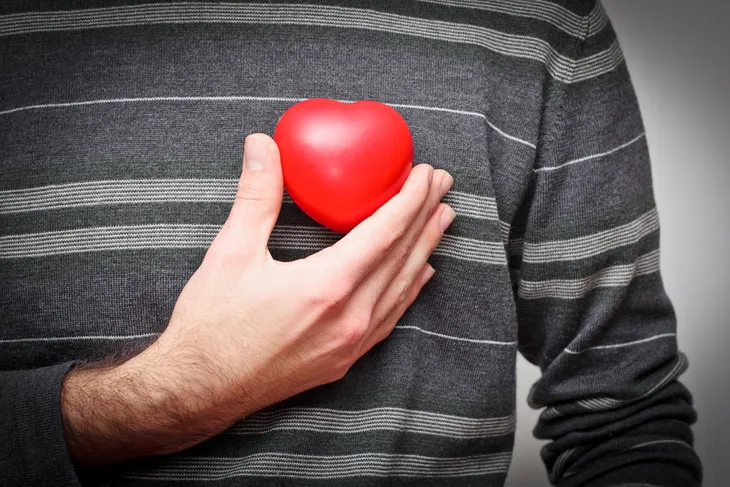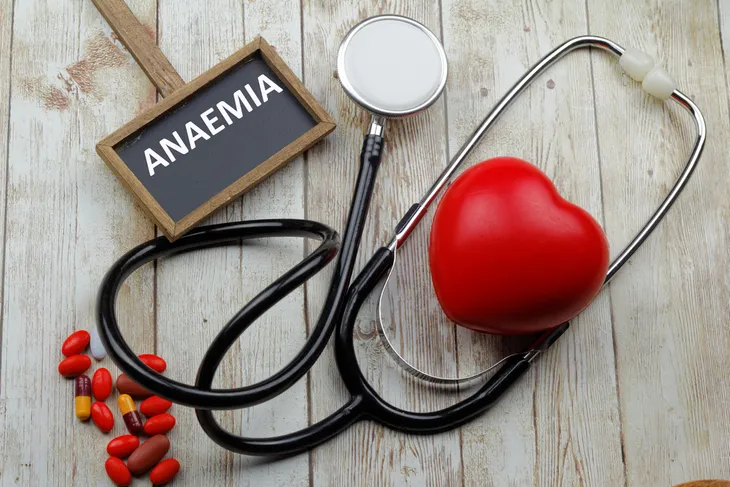The reasons for fainting are vast, and it can often be difficult to find the cause. From low blood sugar and dehydration to heart complications and seizures, some causes of fainting aren’t serious, while others can be extremely dangerous. Because it’s possible for a serious health condition or disease to cause fainting, it’s important to see your doctor or, in some situations, seek emergency medical treatment immediately.
When people faint, they usually experience other symptoms before doing so, all of which can vary depending on the cause of fainting. Some people experience dizziness and nausea, while others feel like sounds are fading away and their vision will change. No matter the symptoms before fainting, notifying someone and sitting or lying on the floor to prevent further injuries (i.e., hurting your head).
Ten common health reasons for fainting are…
1. Dehydration
In medical terms, fainting is referred to as syncope and can be the result of dehydration. When the body loses too much fluid (without it being replaced adequately), people become dehydrated. There are different levels of dehydration, and the symptoms you can experience vary depending on how dehydrated you are. When a person begins to become dehydrated, they may feel dizzy or lightheaded, have a headache, and urinate less frequently. Once they become severely dehydrated, fainting can occur.
Dehydration causes blood pressure to drop and the longer you’re dehydrated, the harder it will be for your body to stabilize your blood pressure. As low blood pressure continues, the risk of fainting increases. Standing up quickly when dehydrated could also bring on a fainting episode. Although you can usually prevent dehydration through drinking enough water, it can also be the result of an illness, such as diabetes, alcoholism, or the flu. If you faint regularly but consume a lot of water, it could be the result of a more serious health condition.
2. Coughing
Coughing might not be an obvious cause of fainting to everyone, but it is actually somewhat common in certain situations. You shouldn’t faint from a small cough here and there, but coughing fits that last a while and cause trouble breathing, pain, or the need to bend over from the stress on your body can lead a person to faint. If you ever have a coughing fit and start to feel lightheaded or dizzy, sit down to prevent further injury if you do faint. Coughing fits cause quick changes in blood pressure, which is why it’s a common reason for fainting.
People who are coughing really hard and for a long time often go red in the face. This is not only from the exertion, but also because of the changes in blood pressure. People with asthma or with chronic coughing conditions (usually caused by another medical issue) are at risk of fainting during cough attacks. If you cough regularly for no apparent reason, see your doctor. Not only could you experience lightheadedness, dizziness, or even faint, chronic coughing isn’t normal and should be investigated.
3. Cardiovascular Conditions
There are several cardiovascular health conditions that can cause fainting, which are referred to as cardiac syncope. Many of these conditions are quite serious, especially if cardiovascular problems are in your family history. If you experience feelings of faintness as well as heart palpitations, erratic heart beats, chest pains, or changes in your pulse, you should seek medication attention, as there could be an underlying condition that needs treatment and monitoring. Although fainting is quite common, your family history and other symptoms relating to the heart should be taken seriously.
One of the common and potentially very serious heart conditions that can cause fainting is an abnormal heart rhythm (arrhythmia). The changes in your heartbeat from arrhythmia can lead you to feeling faint or lightheaded, as your blood flow is the major factor in fainting episodes, and any changes to it and the accompanying symptoms need urgent care. In severe and rare cases, fainting from an arrhythmia can be a warning sign of cardiac arrest, a very life-threatening situation.
4. Medication
Medications almost always have potential side effects, though many people never notice any. Some of them aren’t serious and won’t cause you much trouble, but there are some medications that can cause severe dizziness, vomiting, vision problems, bleeding, and fainting. A surprising amount of people who react to medications feel very dizzy, preventing them from doing everyday tasks. Sometimes the side effect can cause such severe dizziness and lightheadedness that fainting occurs rather quickly, without much notice from other symptoms.
Common medications that cause fainting include those that treat depression, high blood pressure (hypertension), and allergies, which have been known to contribute or to cause a drop in blood pressure. This can then result in the person fainting. Only a small number of people will experience a life-threatening side effect from a medication, so there’s no reason to add worry where it isn’t necessary. But talk to your doctor and pharmacist about potential side effects and what to look for to ease your mind and be knowledgeable about your medications.
5. Hunger
Many of the causes of fainting will present other symptoms before you actually faint. People who experience a fainting episode often claim they experienced lightheadedness, tunnel vision, a slowed or erratic heartbeat, dizziness, nausea, and excessive sweating beforehand. If you faint because of hunger, you’ll probably feel some of these other symptoms leading up to the loss of consciousness, especially lightheadedness.
Unfortunately, with the busy lives everyone seems to lead these days, it’s quite common to skip meals. Work, appointments, volunteer work, sports, and kids all require a lot of your time and it’s easy to miss a meal or two. Your body needs food to function properly, and you’ll only cause more problems for yourself if you don’t eat enough. Your blood sugar level will drop, causing the lightheaded feelings and leading you to faint if you go too long without sustenance. So don’t work through your lunch or just feed your kids. Instead, have a balanced diet and eat regularly to avoid fainting from hunger.
6. Diarrhea
There are a lot of things that can cause diarrhea, including viruses, certain foods, medication, stress, and underlying medical conditions. It’s an unfortunate part of life that everyone experiences at some point (or several times) in their life, and usually, it’s not a major cause for concern. But diarrhea can cause other problems, and a potentially serious issue is dehydration. Diarrhea makes your body dehydrated, so it’s necessary to drink copious amounts of water to rehydrate and prevent you from feeling other symptoms. When you don’t hydrate when you have diarrhea, you could faint.
If you have a random bout of diarrhea and are feeling well within a couple days, it’s likely not cause for concern. However, if you experience diarrhea regularly, you should see your doctor. From food sensitivities and viruses to Crohn’s disease and Irritable Bowel Syndrome (IBS), chronic diarrhea should not go unchecked. A lot of times dietary and lifestyle changes will prevent previous chronic diarrhea from occurring. In rare cases, there may be a more serious health condition that causes diarrhea and other treatment is necessary.
7. Panic and Anxiety Attacks
During panic and anxiety attacks, breathing becomes disrupted. Some people begin to hyperventilate, raising the heart rate and dropping blood pressure. This causes the person experiencing the panic or anxiety attack to feel faint. If they can’t get their attack and breathing under control, fainting can occur. When the blood pressure drops, it’s because your body has naturally tried to protect your vital organs, specifically the brain. The blood rushes there, resulting in the blood pressure and drops in other areas of the body.
It’s important to learn how to cope during episodes of anxiousness and panic because doing so can prevent dizziness, lightheadedness, and in the worst case, fainting. There are breathing techniques to help slow breathing that speeds up from anxiety attacks. You need to focus on relaxing and taking deep breaths. Panicking from hyperventilating will only make it worse, so be prepared by learning about these types of attacks and what you can do to stop them.
8. Diabetes
Diabetes causes high blood sugar levels (hyperglycemia) and requires lifestyle changes and often medication. People with diabetes are at risk of experiencing a drop in their blood glucose levels (hypoglycemia), as maintaining these levels can be difficult. People with type 1 diabetes require insulin injections for the rest of their lives and must follow a special diet to manage the disease. It’s much less common than type 2 diabetes, which can often be managed through diet, exercise, and regular monitoring of blood glucose levels.
Although type 2 diabetes is much more common, fainting can occur with both types. When a diabetic stands up too quickly or doesn’t eat enough, the risk of fainting increases. Taking too much insulin causes a severe drop in blood sugar that can cause fainting, and high blood sugar levels can do this as well. People who don’t know they have diabetes could suffer from fainting spells, and this symptom could help your doctor identify or diagnose diabetes.
9. Anemia
According to the Mayo Clinic, anemia is a condition where your body lacks the necessary amount of healthy red blood cells to carry the required oxygen to your tissues. This causes people with anemia to frequently feel tired and weak. As anemia gets worse, so do the symptoms. Fainting is a pretty severe symptom, so you aren’t likely to faint out of the blue, as you’ll have other warning signs. One of the symptoms of anemia is fainting, but the good news is that it’s a condition that can usually be managed quite easily.
The severity and length of time you have anemia varies, and it can be caused by several different factors. The Mayo Clinic lists several types of anemia, including iron deficiency; vitamin deficiency; anemia from a chronic disease; and hemolytic, sickle cell, and aplastic anemias. It’s important to know that, even if you know you have anemia, you should keep your doctor informed of any symptoms you experience, because sometimes there are other conditions causing the anemia that need to be treated.
10. Seizures
Seizures are one of the more serious health reasons for fainting, and if you experience a seizure you should go to the emergency room. The symptoms of a seizure are frightening. You might lose consciousness and not remember anything, but some seizures cause violent shaking and difficulty with speaking. Seizures are not simple conditions that can cause fainting, and there’s likely an underlying condition that goes beyond a drop in blood pressure or sugar levels. It can happen without any previous symptoms or warning signs, and it often takes people by surprise.
If you or someone around you is feeling faint, tell them to sit or lie down and elevate the legs if possible. A lot of people suffer worse injuries or problems from the act of fainting itself, for instance, they could hit their head, break an arm or leg, fall down a flight of stairs, and so on. So if you experience any symptoms that could be a sign you are going to faint, make sure you stop standing to avoid getting hurt.













